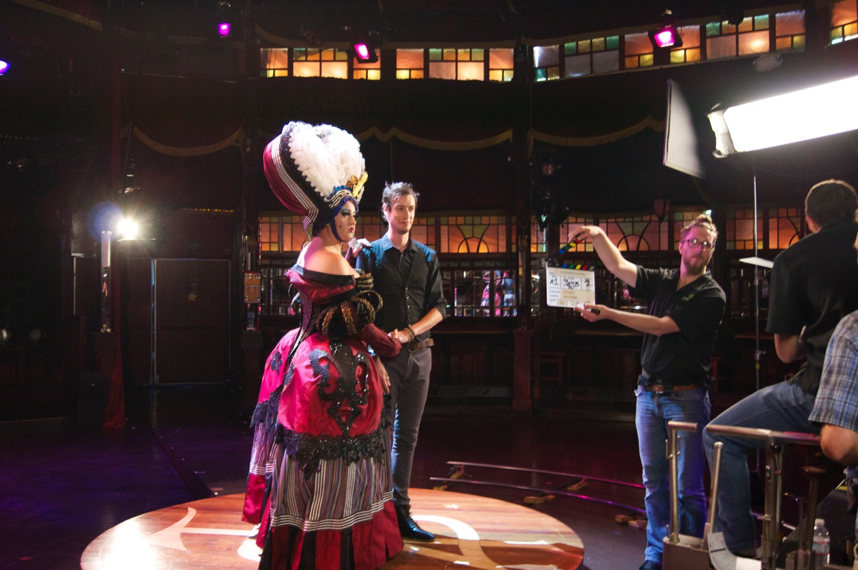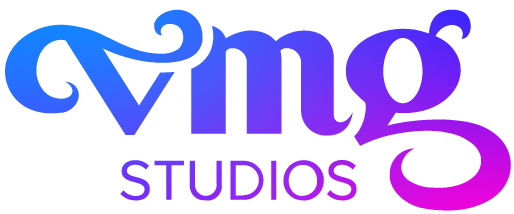If you’re looking to produce video, the first question you’ll probably ask is: how much does it cost? It’s a valid question, but also a complicated one to answer.
The short answer is it varies. It all depends on the kind of video you’re looking for, the quality or level of production, and what’s required to create your video.
This article will address the factors that go into the cost of a video and will help illustrate the difference between a low-budget video and a high-budget video.
How Much Does a Video Cost?
It’s safe to say, producing video is an investment, and an expensive one at that. Sticker shock is a normal first reaction.
Your video, whether live-action or animation (more on that shortly), can range anywhere between $15,000 to more than $100,000.
If you just experienced sticker shock, you’re not alone. So, let’s break it down.
Live-Action Video vs. Animation
Now, you might be thinking, "I thought video meant live-action?" Actually, video comes in a variety of forms, but the two most common ones are live-action and animation. These are the two types of videos you will most likely be choosing between.
How Much Does an Animated Video Cost?
On average, a one and a half minute to two-minute long animated video can cost between $15,000 and $35,000.

Cost Factors for an Animated Video
- Amount of detail in the design
Are you looking to produce something extremely life-like with very detailed imagery, something more abstract, or a more infographic/iconographic style? These are all different styles that affect the variability in cost.
The amount of detail also stems from the creative development such as the number of scenes as identified in the script (often written by the agency), which is then visualized through storyboarding.
- Complexity of the animation
This can include the number of designed layers that need to come to life, the number of scenes as identified in the script, the detail of the animation, or whether character animation is included in the creative concept.
Another factor to consider is whether the animation is 2D or 3D. In general, 3D will take longer and cost more money.
- Length
The longer the video, the more expensive it will be. It’s recommended that you keep your video between 1:00-2:00 in length for maximum viewership and content retention.
- Voice-over
If you use a voice-over as the narrator, there will be an additional cost regardless if the video is an animation or live-action.
- Music
The cost of music will vary depending on its source such as stock music, music libraries, or custom music.
Just like a voice-over, if you use music, there will be an additional cost regardless if the video is an animation or live-action.
- Distribution
Where will the video live: website, social media channels, broadcast? Do you need the video to be optimized for various distribution needs and channels?
How Much Does a Live-Action Video Cost?
There are several different types of live-action video, so there are more contributing cost factors to consider. Here’s a look at the price range for some of the more common live-action videos.
- Scripted narrative: $50,000 - $100,000+
This kind of video comes in various forms including movies, TV shows, commercials, public service announcements, or corporate videos.
- Interview case study: $17,000 - $28,000
This kind of video could be a testimonial video with b-roll (supporting footage) shot at a single location such as a studio or place of business.
- Documentary-style case study: $25,000 - $65,000
While this is also interview-based, it’s more of a “day-in-the-life” based story meaning there are multiple shoot locations and longer shoot days to capture the on-screen subjects in real-life scenarios.

FREE DOWNLOAD: COST OF LIVE-ACTION VIDEOS PRICE GUIDE
Keep in mind, depending on the type of live-action being produced, some of the categories listed below may not apply.
Cost Factors for Live-Action Videos
- Level of production
This includes a variety of factors including whether you use professional talent, hair and makeup, and the number of crew members required for your shoot (all of which we will dive into next).
- Professional talent/casting
Some companies source their own employees as the on-camera talent, but since your employees likely aren’t professional actors, it can negatively affect the production value of your video. If you do hire professional talent, that will require the need to host auditions, cast, make selects, and vet top options with the client for approval. Hiring actors is common in scripted narratives, which contributes to that $50,000-$100,000+ price tag.
If actors are hired, many agencies do rehearsals ahead of time with those actors. This helps fine tune their performance, which saves time and allows the agency to capture more content/scripts during production.
Just like hiring professional talent, hiring someone for make-up, hair and wardrobe increases the production value.
- Number of shoot days
The more shoot days, the more money you’ll spend. The number of production days is determined by the type of content (b-roll/supporting footage, interviews, talent dialogue, etc.), size of the crew, number of interviews, amount of b-roll, number of locations, number of scenes or set-ups, and travel requirements.
- Number of crew members
The number of crew members often affects the number of shoot days. Is this a ‘man-on-the-street’ style that just requires 2-3 crew members, or is this video requiring a larger crew for multiple shots, setups, locations, etc.?
The more crew members you have, the more content you can capture in a single day.
For example, if you’re hiring an actor who is being paid per day, it would make sense to hire more crew members so you can move quickly and not have to pay that actor for more than one day.
The number of crew members can also be determined by time. If your talent is an in-house employee who has limited time to shoot or is in-experienced, an agency may bring in more crew members to ensure they capture all the necessary shots on a time crunch. While there aren’t more shoot days in this scenario, it will cost more because of the bigger sized crew.
- Location & travel
This boils down to hiring a local or out-of-state agency. If an out-of-state agency is the right fit for you (which it often can be), you’ll need to consider travel and lodging costs for the crew.
If you do hire an agency and they have a studio space, that can be cost effective.
Shooting on location (even if a local location) will cost more. An on-location shoot could require more crew, or you may need to pay location fees if there’s a specific, non-owned spot for the production. It could also require more shoot days if sunlight is a necessity.
- Length
Just like animation, the longer the video, the more expensive it will be. This is because more post-production and editorial would need to be included.
- Scripting
Most of the time, agencies write scripts and craft the creative whether it’s a narrative-based project or interview-based project. The agency needs to understand the key messaging points of the desired content to ensure dynamic soundbites are captured.
If a client writes their own scripts (which does happen), an agency will still need to ensure the dialogue flows, is authentic, and captures that target message.
- Supporting Content
Graphics, additional b-roll video, and stock photography will all affect the end price.
- Voice-over
If you use a voice-over as the narrator, there will be an additional cost regardless if the video is an animation or live-action.
The cost for voice-over talent varies based on the length of the video, the type of video, whether it’s internal or external, and if the talent is union or non-union.
- Music
The cost of music will vary depending on its source such as stock music, music libraries, or custom music.
Just like a voice-over, if you use music, there will be an additional cost regardless if the video is an animation or live-action.
- Distribution
Where will the video live: website, social media channels, broadcast? Do you need the video to be optimized for various distribution needs and channels?
Keeping Video Production Costs Down
Bundling your deliverables is a cost-effective way to get more bang for your buck. If you can bundle your content such as scripts or style frames, your cost-per-video decreases. For example, in a live-action production, if you can pull several scripts together and create an optimized shot list, you may be able to shoot enough material for multiple videos in a single shoot. For animation, if you set a design style or create specific brand characters, you can re-purpose the assets in other videos.
You may now wonder if the people watching your video will even notice the difference between a lower budget video and a higher budget video. To see for yourself, below are some examples.
READ: HOW TO SHOOT AND PRODUCE A VIDEO ON A BUDGET
Low End Cost Animation Example
The detail in design and complexity of the animation for this Amazon video is simple, making it a lower price point on the cost scale. Music and a voice-over add to the cost; however, the video is only 30 seconds long which brings the cost down.
High End Cost Animation Example
This is an example of a complex animation that requires more time, detail, and planning. As you can see, characters are created and brought to life. A voice-over is included, as well as music. Another contributing factor to this being a more costly animation is the length: it taps in at more than 2 minutes long.
Low End Cost Live-Action Example
This is an interview-based live-action video with supporting footage and music throughout. Since it’s interview-based, professional voice talent isn’t needed, which helps lower the cost. It’s also a relatively shorter video coming in at 1:15.
High End Cost Live-Action Example
As you can see, this video is highly produced and includes professional casting, a voice-over, and music. This kind of video also requires more crew members to execute specific camera and lighting sequences.
Budgeting For Your Next Video Project
Producing video is no easy, nor cheap, task and figuring out how much it costs depends on a long list of factors. However, if you think about all these factors ahead of time, such as whether the video is a live-action or animation, if professional casting is needed, and the number of shoot days, you can find ways to optimize your budget with the desired end result. While video is an investment, it’s an investment worth making in an ever-evolving media world.
Learn more about video by clicking the image below to download the free eBook: The Beginner's Guide to Video Production.






